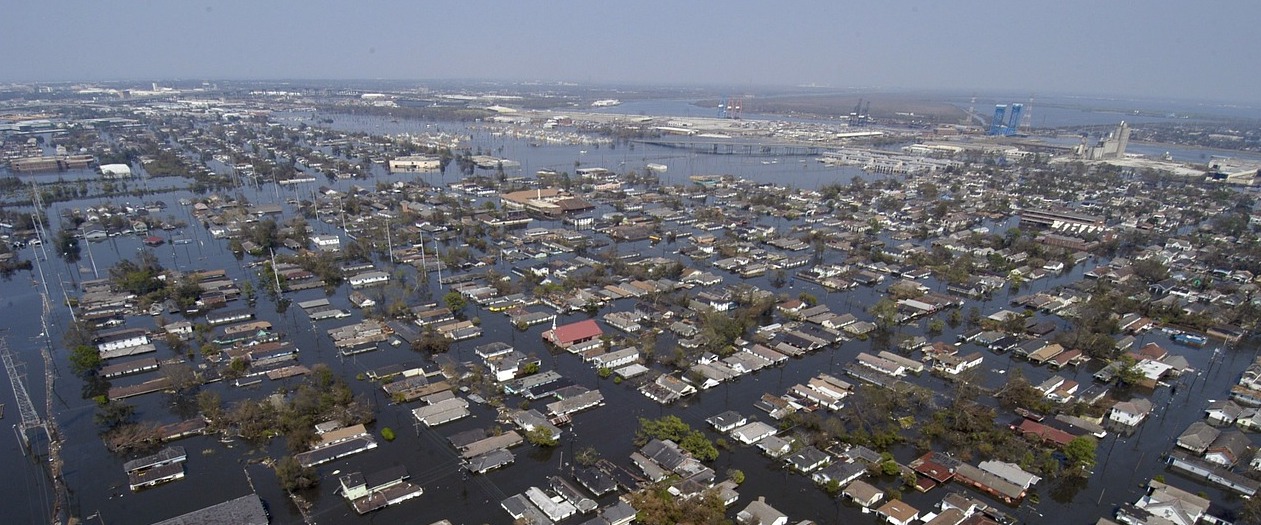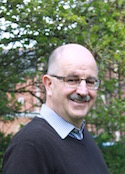
Flooding in New Orleans, where Roger did some of his research. David Mark, Pixabay
Earlier this year, as a practical theologian, I was given the opportunity of presenting at a meeting hosted by the American Geophysical Union. I laid out the case for a close collaboration between theology and geoscience. After my brief presentation, enough interest was kindled for me to be invited to enlarge on my case, since in the words of one delegate, “We as geophysicists have never felt comfortable that theology can contribute anything to our science.” I enlarged on my case, and as I did so I felt encouraged to feel a previous ice age beginning to melt: the ‘ice age’ of science and faith being in conflict.
At the recent conference of the British and Irish Association of Practical Theologians, above the post-modern speak and social science statistics there was no sound of the natural sciences. I raised my concern over this omission in a concluding Q&A session and found that more people than I had expected shared my concern.
Working at the Faraday Institute, I have come to recognise as never before the importance, for a Christian at least, of science and faith working in collaborative relationship. Believing passionately as I do in the inspiration and final authority of the canon of Old and New Testament Scriptures, I see those Scriptures endorsing a sort of supplemental canon contained in the natural sciences. Therefore, under God we have the book of nature (natural sciences) and the book of God (the Bible), and the potential for a beautiful and practical relationship between the two.
For me as a practical theologian studying so-called ‘natural’ disasters, there is a supremely compelling reason for faith and the natural sciences to shed conflict with each other and to gel in collaboration: because it saves lives! One of the strong principles of practical theology (amongst many more slippery and pliable ones), is the belief that the Scriptures were written out of very practical, cultural and moral contexts, many of which were also very traumatic contexts (suffering, war, genocides, floods, famines, etc.), to address people like us today who are also immersed in our own cultural and moral contexts and subject to similar suffering (2 Tim. 3:16-17).
Practical theology sees our current context being of benefit in understanding the ancient ones, and vice-versa. It sees each context feeding off each other in helping arrive at a true understanding and interpretation of Scripture. It also recognises that to achieve this the process has to be inter- if not also multidisciplinary.
For example, God has created, and he sustains, the Earth by way of laws and principles that are capable of scientific investigation. God has also mandated us humans to steward this Earth as his vice-regents (Gen. 1:26-31; 2:16-20). Therefore, it makes sense that the requisite wisdom we humans need to carry out this important mandate is to see science and faith as two parts to the whole wisdom that is required to make a flourishing world. Without either partner listening seriously to the other then the wisdom is no longer wise, and our capacity to prevent suffering and disaster in the world is hamstrung; we end up causing suffering and disaster instead of preventing it.
Around eighty percent of the world’s population self-identifies as being religious, many being Christian. But a huge proportion of that population is denied access to the sciences that can lead to measuring of local seismic activity, to accurate meteorological forecasting, to sustainable land-use, to evacuation protocols, to contextual and affordable construction practices, and to safe zoning in urban development. Even if they have access to the scientific knowledge, they do not have the financial resources to act on that knowledge to mitigate risk. It is so often problems in these areas that lead to too many deaths and life-changing injuries when natural hazards turn disastrous. I have listened to too many accounts of such Christians, gathered in churches for prayer, who have died when their poorly constructed buildings collapsed on them, or who gathered in flood zones but could not escape the deluges that brought so much water and mud down from deforested hills. Similarly, I have witnessed scientific experts coming to “help” local catastrophized populations, but who chose to bypass the local wisdom from the faith beliefs of the people. In view of such facts, how can we justify maintaining a conflict between our faith and the science?
From my research, I have concluded that not only science, but also religion (even Christian religion), are both capable of causing, or prolonging, huge amounts of suffering to humans. On the other hand, I have also witnessed how Christian faith in partnership with science can contribute such a lot to saving lives. Religion without science, and science without religion are what cause many lives to be lost in this naturally spectacular, yet hazardous, world. I have witnessed in each of my research locations the lethal consequences of both Biblicism and scientism. Both are caricatures of the real things.
It is therefore time for a spiritual and intellectual revolution that spurns the idea of conflict between science and religion as passé and embraces the two “books” that the same Creator God has given us, of creation and of faith, for both are needed to live life in God’s Earth.

(c) Faraday Institute
Roger Abbott researches ‘Natural’ Disasters (though he is persuaded there are no disasters that are actually natural, just human). He has carried out projects in Haiti, New Orleans, the Philippines and Somerset, exploring the influence of faith beliefs on survivors’ relationships with God, their community, and the natural environment. Following over 30 years of pastoral minstry, Roger gained his PhD in a practical theology of disaster response from the University of Wales, Trinity & St. David. He has taught a University of Chester validated MA module in the pastoral response to trauma, run a consultancy on pastoral care of trauma, and been an active responder to traumatic incidents in the UK since 1989. He regularly speaks on the theological and human aspects of disasters and our response to them.




